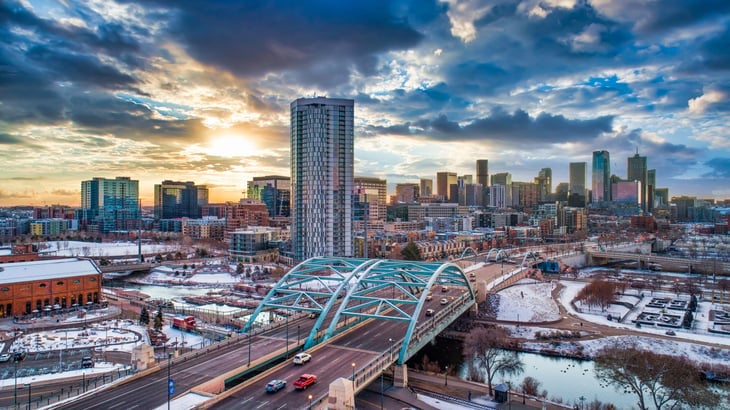
Editor’s Note: This story originally appeared on Point2.
Around 72 million millennials (those born between 1981 and 1996) live in the U.S. today. Representing a large percentage of the country’s demographic, they significantly influence culture, politics and the economy.
Keen to track the preferences of this generation, CommercialCafe has conducted numerous studies over the years. For example, before the COVID-19 pandemic, they looked at the most attractive metropolitan areas for millennials looking to relocate.
More recently, the same study conducted post-pandemic has seen a major shake-up of the original rankings.
Here are the new findings. See the details of the findings at the end.
1. San Jose, CA
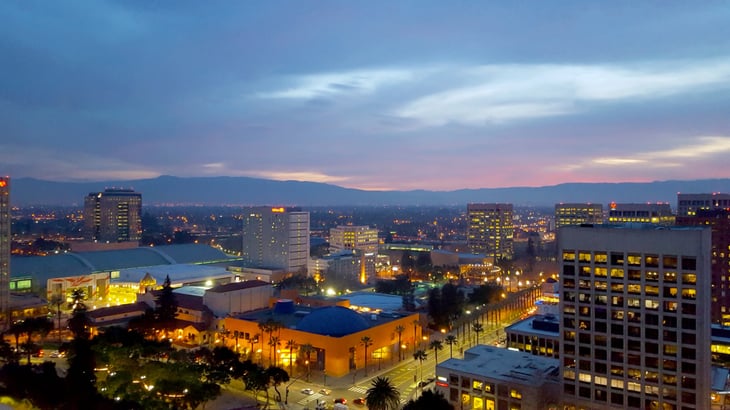
San Jose has seen the most significant shift in the original rankings, rising to first place from 10th in the previous study.
In the post-COVID-19 research, the San Jose metro boasted 77.8 points out of 100, well above most of the competition. It took the top spot regarding the number of millennials with a bachelor’s degree or higher (61%) and also boasted the highest median millennial household income.
Millennial households in San Jose earn, on average, around $150,800 per year. That’s $17,000 more than in San Francisco and about $44,100 more than in Boston.
2. Austin, TX
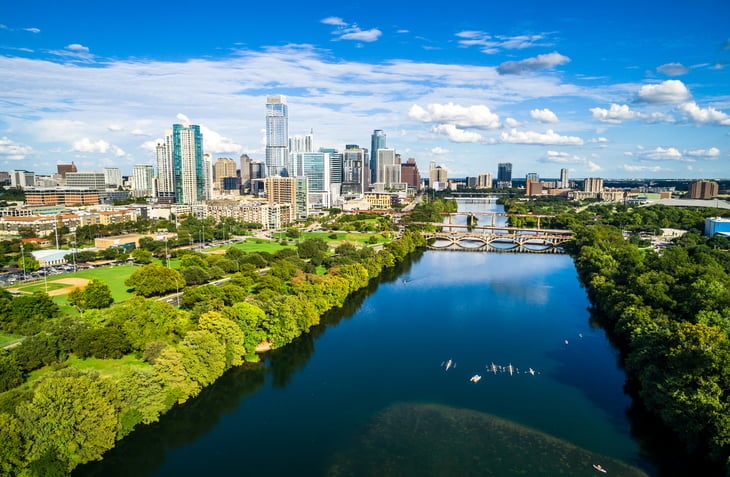
With millennials making up 17.4% of the population, the Austin metro area took the top spot for the most millennial-heavy demographic.
The cohort increased by almost 13% between 2016 and 2020, the third-largest boost in the rankings.
Previous CommercialCafe studies indicate that a large proportion had relocated from other Texas cities, such as Houston, San Antonio and Dallas.
The metro also enjoys a lower cost of living than many other large MSAs, offsetting the median millennial household income’s lower than $100,000 threshold.
Along with excellent education and a robust STEM sector, this has helped the Austin metro rank second, with a score of 73.1 points.
3. Seattle, WA
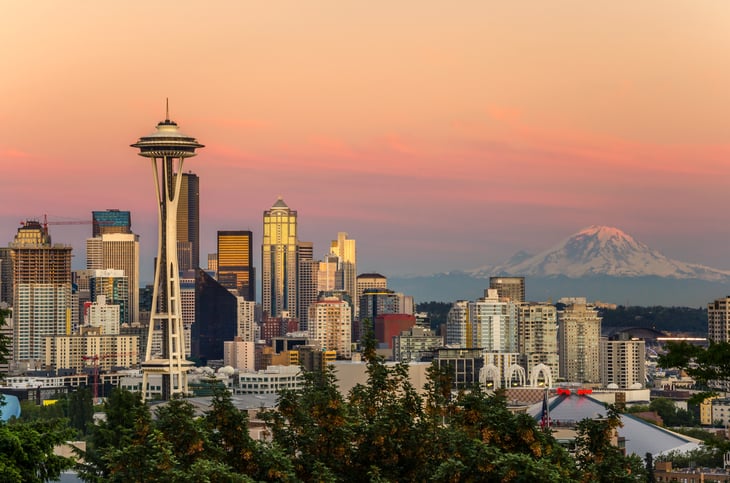
Seattle has witnessed the most significant change in its millennial population, with an increase of 13.7% — an extra 80,000 millennials — between 2016 and 2020.
Bringing the total to 668,000, Seattle took second place for millennial percentage of the total population in 2020 (17%).
While the Seattle metropolitan statistical area (MSA) had the third-worst regional price parity, it remains the most affordable metro on the West Coast, outdoing San Jose and San Francisco.
Plus, with numerous local green incentives and an innovative and exciting business environment, there’s still plenty to love about Seattle, with the metro scoring 69.7 points.
4. Salt Lake City, UT
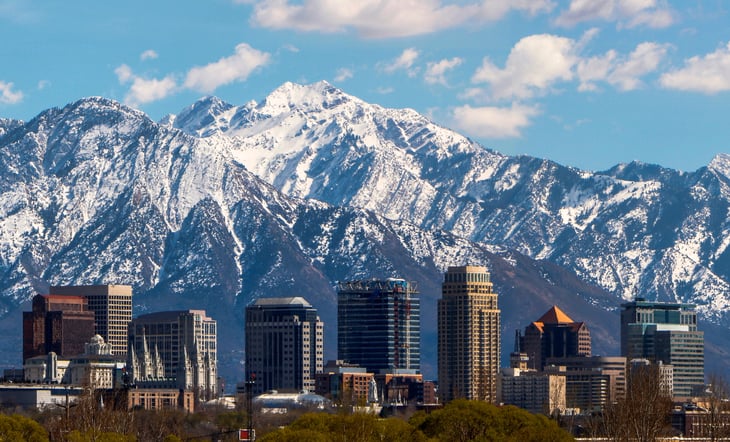
The Salt Lake City metro outperformed other MSAs regarding unemployment, with a rate of just 2.1%.
It also took the No. 2 spot for the number of millennials with employer-based health insurance, 73.8%. And, with 16.4% of the population being millennials, Salt Lake City also ranked fourth for that metric.
These high scores saw Salt Lake City take fourth place in the overall rankings, with 67 points.
5. San Francisco, CA

San Francisco has seen one of the clearest evolutions over the years.
A newcomer to the top 10, it gained many points regarding median millennial household earnings. At around $133,800 per year, millennials in San Francisco are just behind those in San Jose and well ahead of most other metros.
The city also ranked third in terms of both educational attainment and health insurance coverage. Around 58.9% of millennials hold a bachelor’s degree or higher, while 72.9% are covered by employer-based health insurance.
While the city scored the worst in the top 10 in terms of its cost of living indicator, it still obtained 66.9 points to take fifth place.
6. Denver, CO

Denver took the number one spot in previous rankings, but with a total score of 65.8 points, it has since dropped to sixth place.
The metro’s relatively high unemployment rate of 3.6%, the highest in the rankings, saw it lose several points.
However, the MSA did enjoy the second-largest gain in millennial residents. An increase of 12.8% between 2016 and 2020 brought the total percentage to 16.9%.
7. Nashville, TN
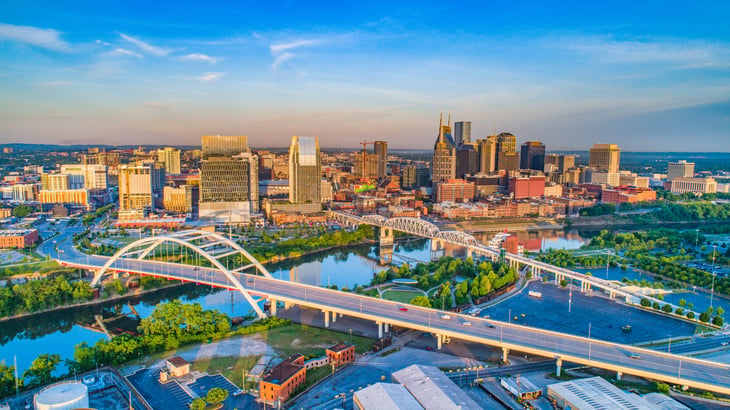
With a score of 65.73, Nashville is just a little behind Denver. For the most part, the Tennessee MSA scores midrange marks across most metrics.
However, at 2.4%, it enjoys the second lowest unemployment rate in the ranking.
On the other hand, it also scores lowest in terms of percentage of millennials with employer-based health insurance and has the second-lowest median millennial household income, at around $72,900 per year.
8. Raleigh, NC

Like Nashville, the Raleigh MSA ranked somewhere in the middle across most metrics, taking eighth position in the rankings with a total score of 64.47.
However, it boasts the second-lowest regional price parity (95.7). On the other end of the spectrum, it has the lowest proportion of millennials in the top 10 (14.3%).
9. Columbus, OH
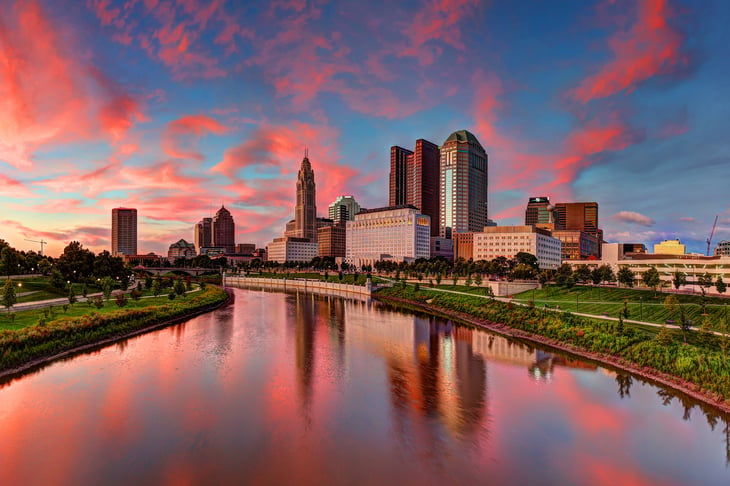
Scoring a total of 63.28 points, Columbus made the top 10 with points to spare. It’s the most affordable metro in the top 10, with a regional price parity of 94.2.
However, this goes hand in hand with the lowest median millennial household income, at around $72,800 per year. In addition, with an unemployment rate of 3.3%, it only outperformed Denver in this metric.
10. Boston, MA
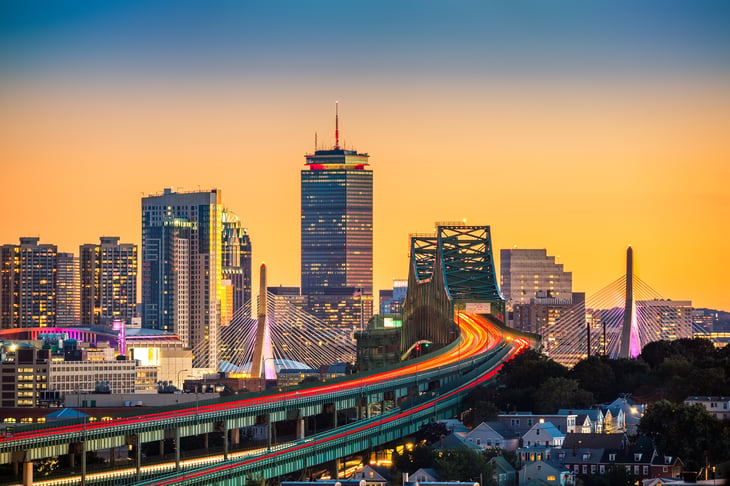
Squeezing into the top 10 with a score of 60.92, the life science hub that is the Boston metro area just made the list, with some high-scoring metrics helping it along.
Most notably, Boston ranked third for median millennial household income (just under $106,700). Boasting excellent educational institutions, it also took second place in educational attainment, with 60% of millennials holding a bachelor’s degree or higher.
Methodology

To determine which U.S. metros are the most alluring for this cohort, the following indicators were analyzed:
- Millennial population growth between 2016 and 2020
- Proportion of millennials in the overall population in 2020
- Regional price parity
- Median millennial household earnings
- Metro unemployment rate
- Percentage of millennials with employer-based health insurance
- Educational attainment (% of millennials with a bachelor’s degree or higher)
